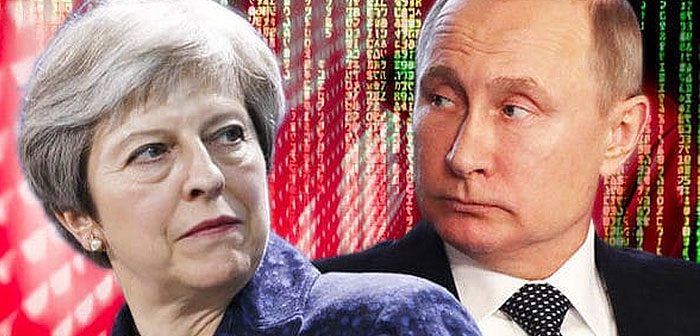Why Jeremy Corbyn is absolutely right to urge restraint, to insist on dialogue and to demand an end to the sabre-rattling.
Source: Stop the War
Government reaction to the poisoning of British spy Ivan Skripal and his daughter Yulia is not just disproportionate, it is downright dangerous. Theresa May has presented no hard evidence as to exactly what happened in Salisbury and the circumstances of the poisoning remain unclear. As a number of people who know about the kind of world Skripal inhabits have pointed out, there are indications he remains involved in espionage and there are a range of possible explanations for his death. Despite promises to respect due process, Theresa May is talking and acting as if attempted Russian state murder is beyond reasonable doubt. But it is not just the refusal to wait for facts that is so alarming, but the hyped-up, confrontational nature of the response. May delivered an absurd 24-hour ultimatum to Russia to explain the events without even allowing access to the evidence. Meetings of the emergency COBRA committee have been followed by a national security council summit, even though it is clear that Britain faces no security threat.
The media is in a frenzy. No surprise perhaps that the right-wing tabloids are raising the stakes but the ‘liberal’ press has been equally gung-ho. On Wednesday, The Guardian listed deploying armed forces to directly threaten Russia as one of the possible responses and went on to suggest:
“NATO can also step up the strategic pressure on Moscow by speeding the process of granting Ukraine provisional membership through agreeing a membership action plan. Similar encouragement can be offered in the Balkans, a key area of conflict with Russia.”
Cold Calculation
This astonishing return to Cold War posturing has international and domestic roots. Tensions between the West and Russia have been rising steadily over the last couple of decades. The most important driver of this has been the Eastward expansion of NATO. Thirteen Eastern European or Balkan countries have joined the Western military alliance since 1990, ten of them in the last fifteen years.
As recently released documents show, this is in direct contradiction to promises made by US Secretary of State James Baker to Russian President Gorbachev, that NATO would not expand “one inch eastward” at the time of German reunification.
Two events in the last few years in particular have sharply increased the sense of confrontation. One was the crisis in Ukraine which erupted in 2014 and the other is Russia’s involvement in the war in Syria which has challenged what the Western powers believe is their rightful role as the main foreign power in the region. Clearly all foreign intervention in the country has only served to exacerbate the continuing agony of the Syrian people.
A new foreign office video outlining the threat posed by Russia to ‘the international rule-based system’ – complete with threatening martial soundtrack – shows just how conscious and concerted the effort to present Putin as a real and present danger is.
The idea that Russia presents an immediate threat to Western security is absurd. The US has greater military firepower than the other nine top military powers put together. It has bases in 76 countries, 40% of the world’s total, spread across the world, as opposed to Russia which has them in nine countries, mostly immediate neighbours. If you add in the rest of NATO’s military weight, Russia is outgunned by a factor of around twenty to one.
The Home Front
The present furore is also driven by domestic concerns. Theresa May is presiding over one of the weakest governments in British history, and her minority administration is slowly sinking in the quagmire of the Brexit talks. She has a huge credibility problem within the establishment. More widely her government is under attack over the NHS, public sector pay, housing and a host of other issues.
In these circumstances May has seized on the attempt on Skripal’s life to reheat cold war catchphrases about the Russian threat. She hopes it will make her look strong and statesmanlike. It reminds the population of Britain’s traditional role at the hawkish leading edge of the trans-Atlantic alliance. Even better, she believes it puts Jeremy Corbyn on the spot and makes him look soft on security in general – and Putin’s Russia in particular.
This line that has been dutifully reproduced by the national media. The Sun calls Corbyn ‘Putin’s puppet,’ the Mail a ‘Kremlin stooge’ and the BBC has focussed large amounts of its coverage on Corbyn’s refusal to accept May’s rush to judgement. What has made things considerably worse is that senior Labour figures, including Shadow Defence Secretary Nia Griffiths have backed the Tories and attacked Corbyn’s position and many on the soft left are demanding Corbyn joins the rush to judgement.
This mix of domestic intrigue and geopolitical brinkmanship is deeply irresponsible. It is encouraging anti-Russian hysteria in Britain at a time when there are real risks of confrontation between nuclear powers. Corbyn is absolutely right to urge restraint, to insist on dialogue and to demand an end to the sabre-rattling. The movement urgently needs to respond with reasoned and principled arguments, demonstrating we can resist the drift to war.

